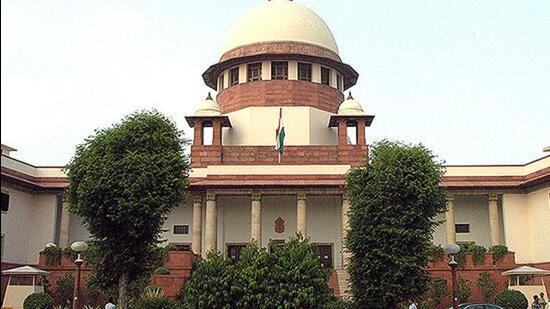Supreme Court dismisses Delhi Waqf Board’s claim over gurudwara property

New Delhi: The Supreme Court on Wednesday dismissed an appeal filed by the Delhi Waqf Board seeking possession of a pre-independence gurudwara as waqf property, observing that the Board should have relinquished its claim once records showed that a religious structure has been functioning on the land since 1948.

A bench of justices Sanjay Karol and Satish Chandra Sharma, sitting during the partial court working days, passed the order while deciding a 2012 appeal filed by the Board, challenging an order of September 24, 2010 by the Delhi high court, which held the property to be in possession of late Hira Singh, who had purchased the property from Mohammad Ahsan in 1953.
Dismissing the appeal, the court said, “The records show there has been a gurudwara functioning since partition. Once a religious structure is there, you should yourself relinquish your claim.”
The Waqf Board represented by senior advocate Sanjoy Ghose said that the high court disturbed the concurrent findings on fact by the trial court, first decided in October 1982, followed by another decision in February 1989, both decided in the Board’s favour. He said that the property has been since time immemorial dedicated as waqf property and witnesses in the suit deposed that there was a mosque that existed and “some sort of a gurudwara” came to be built over that.
The bench interjected Ghose and said, “It is not some sort of gurudwara. There is a fully functional gurudwara there,” referring to the site in question located in village Oldenpur, Shahdara.
The Board had claimed that the property in question has been used as waqf since time immemorial and was notified in the notification of gazette on December 3, 1970 and subsequently corrected by another notification of April 29, 1978 published in the Delhi Gazette on May 18, 1978. As per the Waqf Board records, the property in question was notified as “Masjid Takia Babbar Shah”.
The high court judgment had decided in favour of late Hira Singh as it concluded, “The defendant (Singh) was admittedly in occupation of this property since 1947-48.” At the same time, the court had said, “It is also true that the defendant was not able to adduce any document of title to evidence the purchase of this property, yet this does not in any manner benefit the plaintiff (Waqf Board) who has to establish his own case and prove it to enable him to obtain a decree of possession.”
Further, the high court noted that though the Board claimed it to be waqf property, no dates were given as to from which date the property was being used as a masjid. “This assumes special relevance as the defendant (Singh) in his written statement had specifically controverted this stand.” The Board had relied on deposition of witnesses who attested to the fact that the mosque was constructed by the Muslims, who were the owners of the property, and the defendant occupied it illegally since 1948.
Further, the high court relied upon a 1979 Supreme Court decision in Board of Muslim Waqfs, Rajasthan case where the top court held that where a stranger who is a non-Muslim and is in possession of a certain property his right, title and interest therein cannot be put in jeopardy merely because the property is included in the list published under the Act. Going by this verdict, the high court held that the gazette notification of the property being waqf “would not be binding upon a stranger or a person who does not fall in the category of “person interested in a wakf” as defined under Section 3(h) of the Act.
Singh had pointed out that the premises in dispute used as a Gurdwara is being managed by the Gurudwara Managing Committee. It was further stated that the Waqf Board had in the past filed two suits that were withdrawn in the year 1970 and 1978.
He further pointed out under Section 64 of the Limitation Act, a suit for recovery of possession of property has to be filed within 12 years from the date when the right to sue accrued. In the present case, the Waqf Board filed the suit in December 1980, which was time barred.















